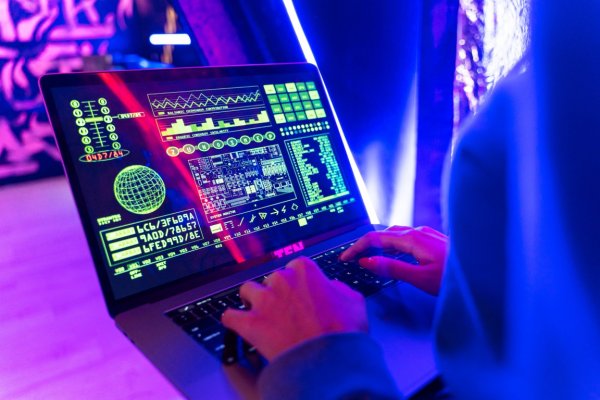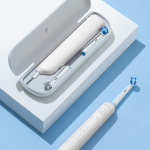Most people are familiar with blue light because it's the type of light that comes from electronic screens, such as computers, phones, and TVs. Blue light is also found in the natural world, such as in sunlight. So why has this become such a big issue lately? It seems like everywhere you go you always hear about this almost deadly blue light that is coming to get you. Before it always used to be, if you look at a screen for too long it'll ruin your eyes. But that has been replaced with the ever present dangers of these blue lights.
If you haven't read our article about why it is important to protect your eyes from blue lights please read that article as it goes into the reasons a bit more in depth. In this article we take a look at all aspects of the dangers of blue lights on your eyes, how the blue light comes from screens, that blue lights impact on your eyes, and finally how you can prevent that light from damaging your eyes. We did our best to find real answers from real scientific reports to put this issue to rest, because honestly couldn't we just turn down the blue aspect of the lights and everything would be fine?
While the blue light from electronic screens is not harmful in small doses, extended exposure can be damaging to the eyes. But let's get down to business, and that is how are these screens suddenly putting off so much blue light that it seems to be a trend to not only talk about its impact , but how bad it is for your health.
The first reason that this seems to be a more recent health issue is because of the way that screens are now made. We use LCD and LED screens much more now than in the past and that changes the way it is presented. It is now in more of a pixel forumlation, and at a higher concentration than the previous screens. So just as we demand sharper and clearer images, there is a demand for power and saturation from these pixels. What does that mean? Basically more light and power are being shot out of screens than the older tube style tvs.
So it isn't as much that there is more blue being shown, it is that it is stronger. We want to see true blue colors, so to do that we need to be exposed to blue light. This , coupled with the wavelength and energy that the color blue uses are the causes of these health issues. So that bring up the next point... what are the dangers of blue light to your eyes?
According to the American Academy of Pediatrics, blue light from electronic screens can have a negative impact on your eyes. Blue light can cause eye strain and fatigue, and can make it difficult to fall asleep at night. Exposure to blue light may also increase the risk for age-related macular degeneration, a condition that can lead to blindness.
We took a look at this study from Harvard about the impact of blue lights on your eyes, and they state that blue light pretty much messes up your sleep pattern. The short version is that your body has a chemical, Melatonin, which tells you when you are sleepy. So when the sun goes down and it gets dark your body makes melatonin and in turn you get sleepy. When you are exposed to blue light it reduces the amount of melatonin. This then messes up your sleep pattern, which is also known as your circadian rhythm. That is the thing that basically tells you to wake up in the morning and go to sleep when it is dark.
So the dangers are pretty much that your eyes can get injured/tired , and can break down at a younger age. Then, you also have the issues of messing up your sleep. And if there is one thing that science has proven is that consistent sleep is one of the most important things to keeping people healthy. Couple this with the fact that no one likes feeling tired and you see that blue light, especially at night, isn't great for anyone.
The best way to protect your eyes from the harmful effects of blue light is to limit your exposure. Try to take breaks every 20 minutes or so when using electronic devices when using screens during the day. When you are getting ready to go to sleep you should avoid using them for several hours before the time you are aiming to fall asleep.
Along with the rise in public warnings about this blue light issue we have seen more and more apps and glasses you can use to reduce your exposure. Almost all Android and Apple tablets and phones come with a version of eye protection that you can put on. One of the original, and still great options is called F.lux. We have been using that app for years and love it as it gently modifies the color of your screen to align with your bed time. So as the day turns to night so do the tones of color on your screen. It is a noticceable difference though, so if your job depends on seeing true color shades we wouldn't suggest this.
So really it comes down to two options.
1) Don't use screens as much before bed if possible.
2) Modify the tone of the colors you are viewing on screens before bed.
Exposure to blue light late at night can disrupt your body’s natural sleep cycle and make it harder to fall asleep. And even during the day, too much blue light exposure can cause eye strain, headaches and make it difficult to focus. So yes, we think that this is something that people should take seriously.
If you couple this with the amount of time people are in front of their screens, which is always increasing, then it could get to be a bigger issue as we age. If young kids are using screens earlier and earlier, their eyes might be damaged earlier than the generation of people before them. I know that losing my eyesight is one of the worst things that I could think about as far as body injuries go so why not try to prevent it if you can?





